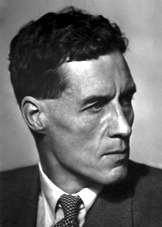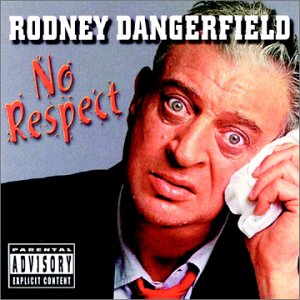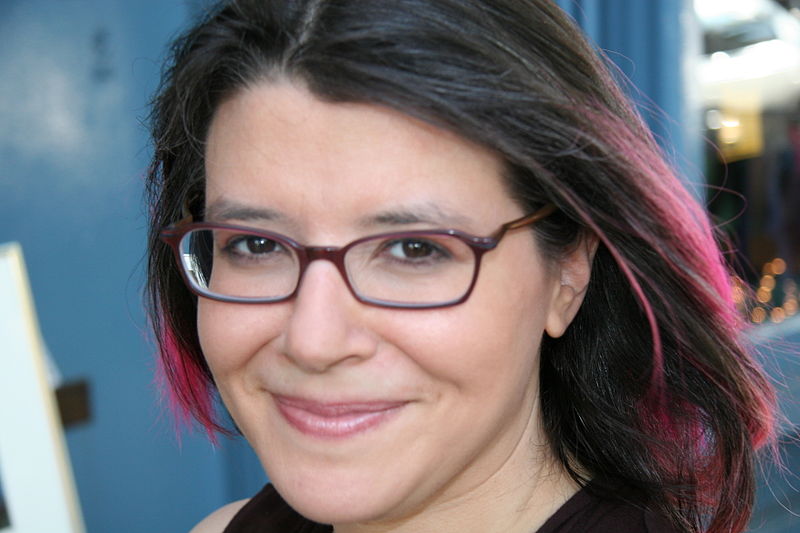This Week in Freethought History (November 17-23)
Here’s your week in Freethought History. This is more than just a calendar of events or mini-biographies – it’s a reminder that, no matter how isolated and alone we may feel at times, we as freethinkers are neither unique nor alone in the world.
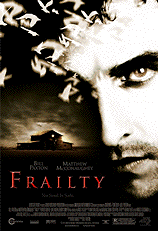 Last Sunday, November 17, but in 2001, the directorial debut of film actor Bill Paxton, entitled Frailty, was first viewed at the Deep Ellum Film Festival in Texas. Paxton, who played “Dad,” was born in Texas, as were his co-stars, Matthew McConaughey, playing the character introduced as Fenton Meiks, and Powers Boothe, playing FBI Agent Wesley Doyle. Frailty begins with the son of “Dad” Meiks (McConaughey) introducing himself to FBI Agent Doyle (Boothe) and claiming to know the identity of the “God’s Hand” serial killer Doyle has been tracking. There follow extended flashbacks in which the peaceful-yet-troubled Meiks relates to Doyle how, when he was a pre-teen, his father was visited by an angel who gave him a list and a mission: to destroy demons masquerading as human beings. The film carries the point to its perverse end: if you believe God speaks to you, how can you disobey him? By its own logic, no matter how immoral your actions may seem to someone who didn’t experience the visions, if it’s God’s will, it can’t be wrong – remember, in the Bible (Gen. 22), God asked Abraham to murder his only son Isaac. And since “Dad” (and only “Dad”) sees the true demons, we are left wondering – if God indeed speaks to mankind and human frailty is such that we actually believe we are doing a good thing when doing a bad thing – that “Dad” might, after all, be right.
Last Sunday, November 17, but in 2001, the directorial debut of film actor Bill Paxton, entitled Frailty, was first viewed at the Deep Ellum Film Festival in Texas. Paxton, who played “Dad,” was born in Texas, as were his co-stars, Matthew McConaughey, playing the character introduced as Fenton Meiks, and Powers Boothe, playing FBI Agent Wesley Doyle. Frailty begins with the son of “Dad” Meiks (McConaughey) introducing himself to FBI Agent Doyle (Boothe) and claiming to know the identity of the “God’s Hand” serial killer Doyle has been tracking. There follow extended flashbacks in which the peaceful-yet-troubled Meiks relates to Doyle how, when he was a pre-teen, his father was visited by an angel who gave him a list and a mission: to destroy demons masquerading as human beings. The film carries the point to its perverse end: if you believe God speaks to you, how can you disobey him? By its own logic, no matter how immoral your actions may seem to someone who didn’t experience the visions, if it’s God’s will, it can’t be wrong – remember, in the Bible (Gen. 22), God asked Abraham to murder his only son Isaac. And since “Dad” (and only “Dad”) sees the true demons, we are left wondering – if God indeed speaks to mankind and human frailty is such that we actually believe we are doing a good thing when doing a bad thing – that “Dad” might, after all, be right.
Last Monday, November 18, but in 1897, English experimental physicist Patrick Blackett was born. From a childhood interest in model airplanes and wireless (crystal radio), he won entry to the Royal Naval College, Osborne, Isle of Wight. When World War I broke out, Blackett was assigned duty as a midshipman. He left the Navy to study mathematics and physics at Cambridge and graduated Magdalene College in 1921, taking a research position at Cavendish Laboratory. From there he began the experimental work for which he is known: cloud chambers, cosmic rays, and paleomagnetism. Blackett was awarded the Nobel Prize in Physics in 1948 for his investigation of cosmic rays using his invention of the counter-controlled cloud chamber. He became a Fellow of the Royal Society and later its President (1965-1970). Politically, Baron Blackett allied with the left and called himself a socialist. His views influenced the Labor Government in the 1960s. English physicist and radio astronomer Sir Bernard Lovell wrote that those who worked with Patrick Blackett in the laboratory “were dominated by his immensely powerful personality, and those who knew him elsewhere soon discovered that the public image thinly veiled a sensitive and humane spirit.” In Patrick Blackett: Sailor, Scientist, Socialist (2002), Blackett is described as a “Heretic” by his mentor, Ernest Rutherford. Mary Jo Nye, in her notice (2008), writes, “The grandson of a vicar on his father’s side, Blackett respected religious observances that were established social customs, but described himself as agnostic or atheist” and that “He believed that science, clear thinking, and good will could win the day.”
Last Tuesday, November 19, but in 1962, American film actress and director Jodie Foster was born. One of the brighter intellectual lights in Hollywood, Foster graduated magna cum laude from Yale University with a BA in Literature in 1985. She is also fluent in French. Since before her first notable film appearance, as a twelve-year-old, playing a prostitute opposite Robert DeNiro, in Martin Scorsese’s Taxi Driver (Academy Award Nomination for Best Supporting Actress, 1976), and afterward, Foster has appeared over 50 times in film and television roles. These include The Accused (Golden Globe and Academy Award for Best Actress, 1988) and The Silence of the Lambs (New York Film Critics Circle and Academy Award for Best Actress, 1991). Actors are not often like the characters they play (that’s why they call it acting), but Foster found a kindred spirit in Dr. Eleanor Arroway, the astronomer in the 1997 film based on Carl Sagan’s novel, Contact. In the film, Foster’s character says: “What is more likely? That an all-powerful mysterious God created the Universe and then decided not to give any proof of His existence, or that He simply does not exist at all?” In real life, Foster says, “I absolutely believe what Ellie believes – that there is no direct evidence, so how could you ask me to believe in God when there’s absolutely no evidence that I can see? I do believe in the beauty and the awe-inspiring mystery of the science that’s out there that we haven’t discovered yet, that there are scientific explanations for phenomena that we call mystical because we don’t know any better.”
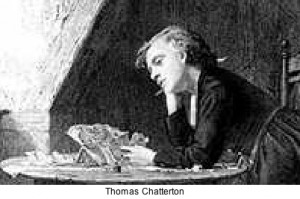 Last Wednesday, November 20, but in 1752, the poet generally regarded as the first Romantic poet in English, Thomas Chatterton, was born. Poverty and rejection were the story of his life, but in the brief 17 years of his existence, Chatterton forged mediæval poetry and prose of such quality – the “Rowley Poems” – that it deceived even Horace Walpole. It is true that Chatterton used theistic language in some of his poems, but from his satirical “Last Will and Testament” (1770) we find these lines: “I also leave my religion to Dr. Cutts Barton, Dean of Bristol, hereby empowering the Sub-Sacrist to strike him on the head when he goes to sleep in church. My powers of utterance I give to the Reverend Mr. Broughton, hoping he will employ them to a better purpose than reading letters on the immortality of the soul. I leave the Reverend Mr. Catcott some little of my free thinking, that he may put on spectacles of reason and see how vilely he is duped in believing the scriptures literally.” Chatterton was too proud to accept charity and too depressed at the poor payment for his poetry by leading London publishers. On 24 August 1770, he poisoned himself by drinking arsenic in water. Too late, Burns, Keats, Shelley, Byron, Coleridge and other poets declared him a genius and a prodigy. Thomas Chatterton had written to his family shortly before his death, “I am no Christian.”
Last Wednesday, November 20, but in 1752, the poet generally regarded as the first Romantic poet in English, Thomas Chatterton, was born. Poverty and rejection were the story of his life, but in the brief 17 years of his existence, Chatterton forged mediæval poetry and prose of such quality – the “Rowley Poems” – that it deceived even Horace Walpole. It is true that Chatterton used theistic language in some of his poems, but from his satirical “Last Will and Testament” (1770) we find these lines: “I also leave my religion to Dr. Cutts Barton, Dean of Bristol, hereby empowering the Sub-Sacrist to strike him on the head when he goes to sleep in church. My powers of utterance I give to the Reverend Mr. Broughton, hoping he will employ them to a better purpose than reading letters on the immortality of the soul. I leave the Reverend Mr. Catcott some little of my free thinking, that he may put on spectacles of reason and see how vilely he is duped in believing the scriptures literally.” Chatterton was too proud to accept charity and too depressed at the poor payment for his poetry by leading London publishers. On 24 August 1770, he poisoned himself by drinking arsenic in water. Too late, Burns, Keats, Shelley, Byron, Coleridge and other poets declared him a genius and a prodigy. Thomas Chatterton had written to his family shortly before his death, “I am no Christian.”
Last Thursday, November 21, but in 1694, French writer François-Marie Arouet, who became famous as Voltaire, was born. His education began under a skeptical French Jesuit. After he published a witty satire on the Prince d’Orleans, a notorious scoundrel, he was exiled in 1716 and placed in the Bastille the next year. Arouet adopted the pen name Voltaire and wrote his first play. In 1733, on returning from England, he published his Philosophic Letters on the English, which were burned by the hangman. The “arch-mocker,” as the clergy dubbed him, spent most of the rest of his life exiled from Paris. He spent some time in the court of Frederick the Great, a kindred spirit. In 1758 he finally settled where he could easily escape across the French border should the need arise: Ferney. There he lived the last 20 years of his life, writing some of his best works: Candide (1759), Treatise on Toleration (1763), and his Philosophical Dictionary (1764). All his life Voltaire was a Deist, with no belief in immortality or free will. Clerical claims that he died pining for a priest are false – in fact, all he would say was, “I die adoring God, loving my friends, not hating my enemies, and detesting superstition.” Indeed, he wrote in 1767, “I have never made but one prayer to God, a very short one: ‘O Lord, make my enemies ridiculous.’ And God granted it.” After Shakespeare, Voltaire is the most famous writer in Western history. Here are some random quotes from his Philosophical Dictionary:
Yesterday, November 22, but in 1921, American comedian Rodney Dangerfield was born. Described by the LA Times as “the google-eyed comic famed for his self-deprecating one-liners and signature phrase ‘I can't get no respect,’” from the 1960s became a headliner in Las Vegas and made frequent appearances on The Ed Sullivan Show, The Dean Martin Show and The Tonight Show. At the peak of his career in the 1980s, Dangerfield’s comedy album “No Respect” won a Grammy Award (1980) and he appeared in several films: Caddyshack (1980), Easy Money (1983) and Back To School (1986). He influenced many younger comedians, such as Robert Klein, Bob Saget and Chris Rock, and, after watching him perform at the Comedy Store in Los Angeles in the 1980s, mentored an up-and-comer named Jim Carrey. Dangerfield was awarded the Lifetime Creative Achievement Award in 1994 and also achieved a star on the Hollywood Walk of Fame.The truths of religion are never so well understood as by those who have lost the power of reasoning. … Which is more dangerous, fanaticism or atheism? Fanaticism is certainly a thousand times more deadly; for atheism inspires no bloody passion, whereas fanaticism does. … Fanaticism causes crimes to be committed … Whenever an important event, a revolution, or a calamity turns to the profit of the church, such is always signalized as the Finger of God.
I tell ya, I get no respect from anyone. I bought a cemetery plot. The guy said, “There goes the neighborhood!”
Less than three months before his death on 5 October 2004, Dangerfield admitted to radio host Howard Stern that he had been an atheist for a long time. Stern asked Dangerfield if he believed in an afterlife. Dangerfield replied that he is a “logical” atheist and added, “We’re apes––do apes go anyplace?” “So there’s no heaven?” Stern pressed, “Judaism for you never mattered?” “Nope. Never mattered. All religion never mattered. Atheist all the way. That’s it,” said Dangerfield. Though he died, age 82, without religion, at Rodney Dangerfield’s funeral, actress Farrah Fawcett led a ceremonial Native American butterfly release.
Today, November 23, but in 1965, American poet, historian, philosopher, and author Jennifer Michael Hecht was born. By 1995 she had earned her Ph.D. in the History of Science from Columbia University. To date she has published two prize-winning poetry collections. On history and philosophy, Hecht has published Doubt: A History (2003), The End of the Soul (2003) and The Happiness Myth (2007). Her scholarly articles have been published widely. She is an honorary board member of the Freedom From Religion Foundation (FFRF). Hecht was interviewed about her book on the history of doubt in 2009 on the “Speaking of Faith” program (now called “On Being”) for American Public Media. Host Krista Tippett asked Hecht to explain her book. Hecht replied, “Like belief, doubt takes a lot of different forms, from ancient Skepticism to modern scientific empiricism, from doubt in many gods to doubt in one God, to doubt that recreates and enlivens faith and doubt that is really disbelief. … You have to be a little bold and a little brave in most periods of time to be a doubter.” Elsewhere in the interview, Hecht gives a nuanced view of religion and morality—The thing is most doubters throughout history, even if they doubted all the way to not believing in any kind of religious idea, most of them … aren’t against religion. ... They just have to fill in certain parts differently, because they don’t think that the world is being guided, or has been created, or is being judged by anyone. And if you don’t think that you’re being watched, and if you don’t think that, for instance, morality comes from some outside source, it immediately gives you an incredible amount of responsibility.
Keeping to that theme, in addressing the FFRF Convention in 2009, Jennifer Michael Hecht said, “If there is no god – and there isn’t – then we [humans] made up morality. And I’m very impressed.”
Other birthdays and events this week—
November 18: Cult leader Jim Jones conducted the People’s Temple suicide in Guyana (1978).
November 18: The French philosopher best known for his Historical and Critical Dictionary, Pierre Bayle was born (1647).
November 18: According to Jewish legend, Noah’s Ark came to rest on the mountains of Ararat after the Biblical “Flood” (2347 BCE).
November 19: American media mogul and philanthropist Ted Turner was born (1938).
November 19: American television talk show host Dick Cavett was born (1936).
November 19: American television and radio host Larry King was born (1933).
November 20: South African writer, political activist and 1991 Nobel laureate in Literature, Nadine Gordimer was born (1923).
November 20: Finnish philosopher and sociologist Edward Westermarck was born (1862).
November 21: Icelandic singer-songwriter Björk (Björk Guðmundsdóttir) was born (1965).
November 22: English novelist, journalist, translator and one of the leading writers of the Victorian era, George Eliot was born (1819).
November 23: French mathematician and philosopher Blaise Pascal had his famous religious conversion (1654).
November 23: American Freethought blogger, liberal polemicist and creator of the Freethought Almanac, Ronald Bruce Meyer was born (1954).
We can look back, but the Golden Age of Freethought is now. You can find full versions of these pages in Freethought history at the links in my blog, FreethoughtAlmanac.com.
[soundcloud url="https://api.soundcloud.com/tracks/121644711" width="100%" height="166" iframe="true" /]